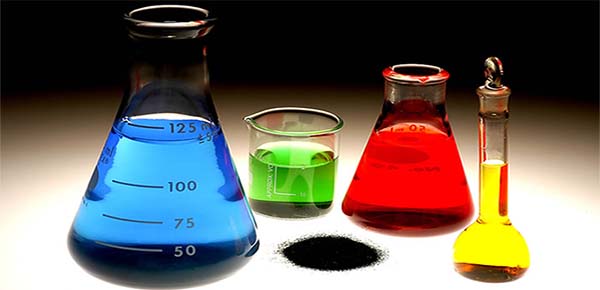- Have any questions? Contact us!
- info@dr-rath-foundation.org

International Tribunal Accuses Monsanto Of Committing ‘Ecocide’
April 20, 2017
New Clinical Review Finds Sunscreen Use Causing Widespread Vitamin D Deficiency
May 5, 2017Brussels EU Regulators Blatantly Ignoring Toxic Effects Of Pesticide Cocktails In Foods

A new Brussels EU report pompously claims that food consumed in Europe contains levels of pesticides that are within so-called ‘legal limits’. Analyzing over 84,000 samples, the report misleadingly declares that more than 97 percent of those examined had chemical residues which are within the amounts permitted by Brussels EU legislation. Clearly intended as health propaganda to convince the public that the insect-killing poisons sprayed on their foods are safe for human consumption, the publication blatantly ignores the toxic amplifying effects that combinations of pesticides can have when present together.
Published by the European Food Safety Authority, the analysis looks at foods such as aubergines, bananas, broccoli, virgin olive oil, orange juice, peas, sweet peppers, table grapes, wheat, butter, and eggs. Testing for a total of 774 different chemical residues, the results show that pesticides were found in foods from all categories. Worse still, from a food safety point of view, the report overlooks the fact that the various pesticides and other synthetic chemicals contained in foods are ingested not in isolation but in tandem with one other.
Evidence growing regarding the harmful effects of chemicals in our food
 Adding further weight to this public health concern, a research project from Denmark published in 2015 illustrates how the effects of multiple chemicals in our food may be significantly more harmful than once believed. Recognizing that such chemicals are consumed not individually but in cocktails, the assessment was carried out by researchers from the National Food Institute at the Technical University of Denmark. Significantly, it found that even small doses of substances such as pesticides and polychlorinated biphenyls (PCBs) can amplify each other’s negative effects when present in combinations.
Adding further weight to this public health concern, a research project from Denmark published in 2015 illustrates how the effects of multiple chemicals in our food may be significantly more harmful than once believed. Recognizing that such chemicals are consumed not individually but in cocktails, the assessment was carried out by researchers from the National Food Institute at the Technical University of Denmark. Significantly, it found that even small doses of substances such as pesticides and polychlorinated biphenyls (PCBs) can amplify each other’s negative effects when present in combinations.
The Danish finding essentially confirmed concerns that we ourselves first raised over a decade ago regarding the approach taken by the Codex Alimentarius Commission, a United Nations organization, in its setting of maximum limits for pesticides in foods. Just as with the Brussels EU report, in establishing the Codex levels – which are used by the World Trade Organization as a reference point for its adjudications on international trade disputes involving foods – the cumulative effect that the consumption of multiple pesticides may have on the long-term health of consumers has been largely ignored. In this respect, the fact that Codex meetings have effectively been controlled by the Brussels EU for more than a decade now is no coincidence.
The benefits of switching to organic food
 Fortunately, other research suggests that our body burden of pesticides can be lowered. A study from the United States published in 2015 showed that switching from conventionally grown fruits and vegetables to produce grown organically, even just for a few days, significantly reduces the levels of pesticides in children’s bodies. Examining 40 children between 3 and 6 years of age, researchers from the Center for Environmental Research and Children’s Health at UC Berkeley found that an organic diet quickly lowered their levels of several pesticides by between one-quarter and one-half. Consistent with other research reporting similar findings, the study joined a long line of scientific investigations that confirm the health benefits of switching to organic food.
Fortunately, other research suggests that our body burden of pesticides can be lowered. A study from the United States published in 2015 showed that switching from conventionally grown fruits and vegetables to produce grown organically, even just for a few days, significantly reduces the levels of pesticides in children’s bodies. Examining 40 children between 3 and 6 years of age, researchers from the Center for Environmental Research and Children’s Health at UC Berkeley found that an organic diet quickly lowered their levels of several pesticides by between one-quarter and one-half. Consistent with other research reporting similar findings, the study joined a long line of scientific investigations that confirm the health benefits of switching to organic food.
As Dr. Rath explained in the Barletta Declaration, in order to create a truly effective preventive health care system, we have to tear down the artificial barriers that exist between nutrition and health, as well as between medicine and agriculture. The continued existence of these information blockades does not benefit the people of the world, but instead the pharmaceutical, chemical, and biotech industries that earn vast sums of money from the sale of drugs, agricultural chemicals, artificial food additives, and GMOs.
In the not-too-distant future, supported by public health education programs focusing on the micronutrient content of dietary plants, organic-based systems of food production will inevitably replace intensive agricultural approaches that rely on the use of toxic chemical inputs. Meantime, of course, the Brussels EU, the Codex Alimentarius Commission, and other international regulators will no doubt continue to pretend to us that pesticide residues in foods are safe. Just as with the pharmaceutical ‘business with disease’, however, in the years ahead they will surely be held to account for this.



